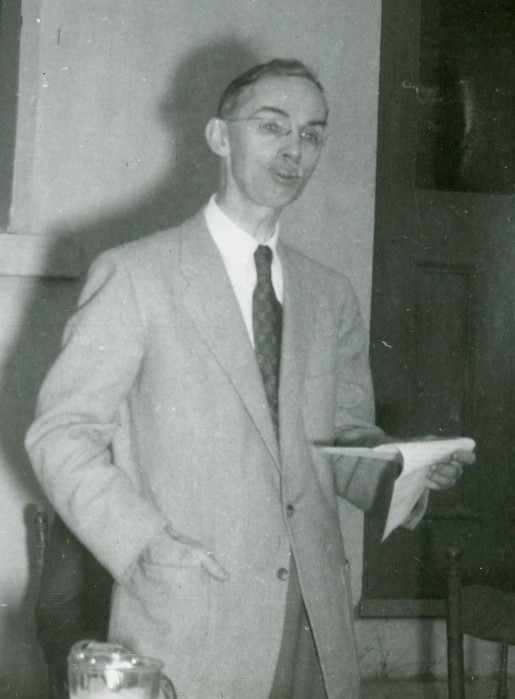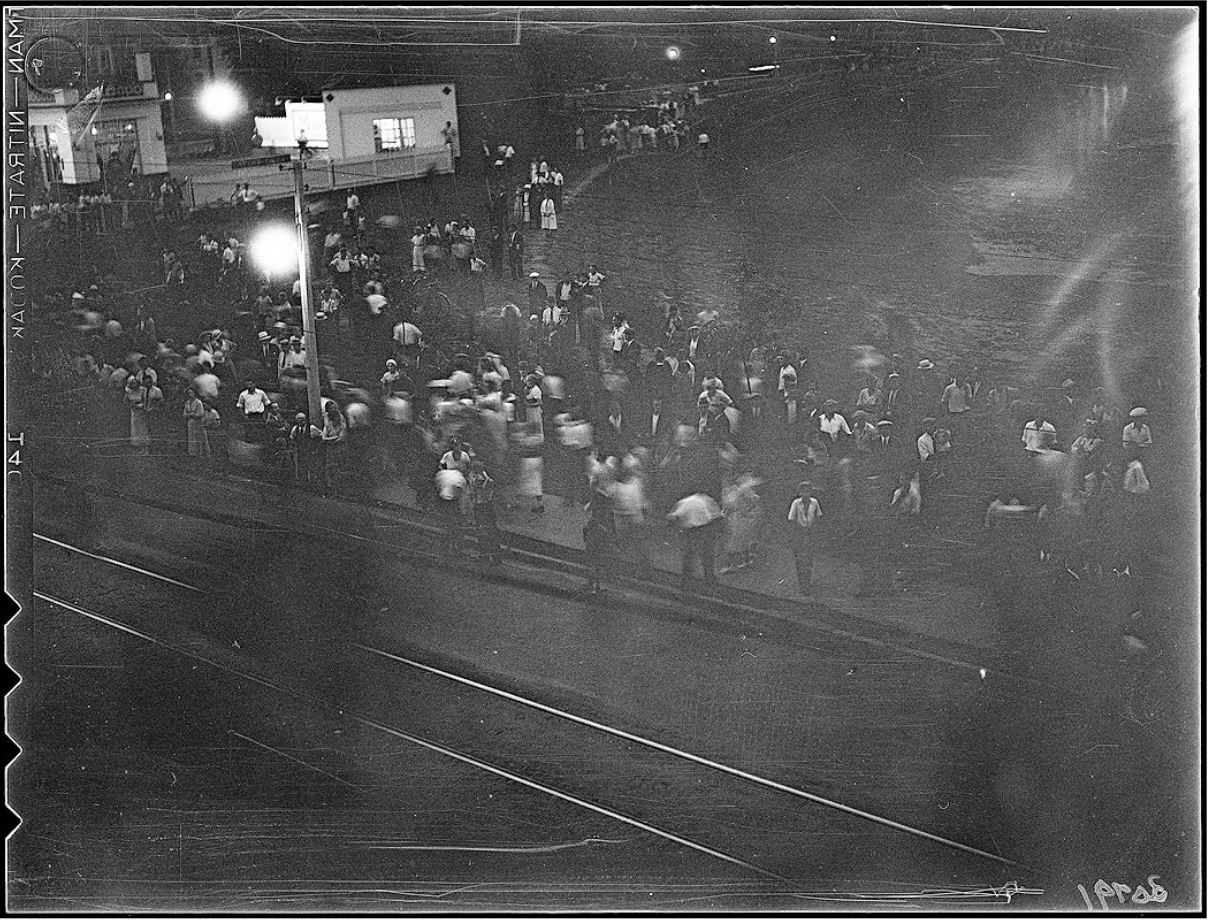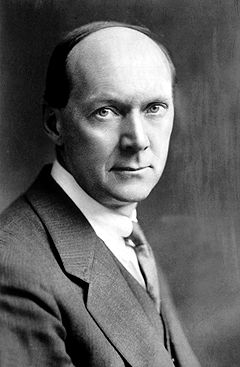Thomas Watson Kirkconnell, university professor and administrator (born 16 May 1895 in Port Hope, ON; died 26 February 1977 in Wolfville, NS). A professor of English and Classics, Kirkconnell became one of Canada’s most prolific translators and the recipient of honours both at home and abroad. He was a founding member of the Humanities Research Council of Canada (now the Social Sciences and Humanities Research Council of Canada). An early cultural pluralist, Kirkconnell promoted the tolerance and celebration of European cultures in Canada, a diversity he described using the tapestry metaphor.

Early Life and Education
Thomas Watson Kirkconnell was the third of five children born to Thomas Allison and Bertha Gertrude (nee Watson) Kirkconnell. He experienced poor health and did not enter public school until the age of seven,. After graduating from Lindsay Collegiate Institute with honours, he studied at Queen’s University for three years, earning an MA in 1916 and receiving university medals in both Greek and Latin.
He then enlisted for overseas service but was rejected for medical reasons and spent the remainder of the First World War in Internment Operations. Intent on becoming an anthropologist, he engaged in a great deal of independent study before Franz Boas dissuaded him from pursuing a degree. His pursuit of an eclectic variety of career paths was continually stymied by illness. He eventually settled on journalism, and successfully applied for an IODE Overseas Scholarship to study for a B.Litt in Economics at Oxford University. Although he was not awarded the degree, his thesis was published as The International Aspects of Unemployment in 1923.
University Professor
Kirkconnell’s career in academia began largely by chance. In the fall of 1922, while still in the midst of revising his B.Litt into a book manuscript, Kirkconnell accepted a job as a replacement lecturer in the Department of English at Wesley College (later United College; now the University of Winnipeg). He quickly rose through the ranks to become a full professor by 1930. Three years later, he accepted the offer to chair the Department of Classics, where he remained until 1940. He then accepted an offer to chair the Department of English at McMaster University, a position he held until 1948. From then until his retirement in 1964, he served as the 11th president of Acadia University.
Translator and Poet
Kirkconnell was an ambitious translator of more than 4,000 pages of poetry from scores of different European languages. This lifelong passion was awakened in 1925 following the death of his first wife, Isabel, in childbirth, after which he translated 100 elegies from nearly 40 different languages into English. (He remarried in 1930 to Helen Kitchener. They had three daughters; Kirkconnell had twin boys from his first marriage.)
Subsequent publications included collections of translated Hungarian, Icelandic, Polish and Ukrainian poetry. His efforts also extended to his Milton studies; he published three volumes of translated analogues (models that may have influenced Milton’s own works). Although Kirkconnell also composed upwards of a thousand pages of original poetry, it was not as well received as his works of translation. Professor of translation, Judith Woodsworth, suggests that this is in part due to the “unevenness of quality in his vast body of work” and his insistence at remaining “firmly rooted in nineteenth century traditions.”
Cultural Pluralism and Racism
While in the midst of his independent study of anthropology and related fields, Kirkconnell became a passionate believer in racial hierarchies and specifically the superiority of “white” to “non-white” peoples. As a young man, he suggested that immigration to Canada be restricted to British or “Anglo-Saxon” people. He also promoted eugenic policies such as the sterilization of those deemed “unfit.” After moving to the more cosmopolitan city of Winnipeg and grieving the loss of his wife, he came to accept the equality of all European peoples. More than this, he went on to become a champion of so-called “New Canadians,” that is, immigrants from continental Europe and their descendants in Canada.
His pathbreaking efforts consisted primarily of translating immigrants’ poetry into English and in trying to raise awareness of their contributions to Canadian culture and society. In addition to his translations of poetry, from 1935 through 1964 he completed for the University of Toronto Quarterly an annual survey of works published in languages other than English or French. In one of his translated collections, Canadian Overtones (1935), he called for national holidays, public school curriculum, university courses and even a national institute to be dedicated to the history of the various cultures and their cooperative existence in Canada. His advocacy stemmed from the belief that pride in their home cultures would make immigrants strive to be the best possible Canadian citizens. He did not embrace the mosaic metaphor of his peer, John Murray Gibbon, but instead preferred to speak of a national “tapestry” in which the colorful threads of multiple cultures were woven into a single fabric of national identity.
Kirkconnell’s activism did not extend to people of African, Asian or Indigenous descent. Although he was aware of their cultures, in some cases basing his poetry on traditional Indigenous stories, he did not otherwise engage with them. This decision was a result of his deeply rooted belief in the biological superiority of people of European descent. As late as 1953, he remained opposed to interracial marriage, and in 1966 he praised research that purported to show that African Americans were intellectually inferior to white Americans. Proponents of racial equality were promoting dogma, not facts, he argued.
Due to his expertise with European cultures, during the Second World War Kirkconnell was called on to assist the federal government help promote national unity. These efforts included publishing a pamphlet entitled Ukrainian Canadians and the War and crafting a program entitled Canadians All. This consisted of a radio series and a pamphlet of the same name, published in both English and French and distributed nationwide. Owing to the biases of its author, this effort excluded people of Asian, African and Indigenous descent (though the latter were included in a second edition of the pamphlet). In 1942, he became a founding member of the federal Committee on Cooperation in Canadian Citizenship. (See also Canadian Citizenship.) However, his outspoken anti-Communism quickly became a great source of friction, and he resigned in 1944.
Cold Warrior
Kirkconnell was one of Canada’s earliest and most outspoken anti-Communists, airing concerns as early as 1939. Frustrated with the retort that he was inventing his charges, Kirkconnell subscribed to several Russian newspapers and began scrupulously researching others in public libraries, focusing specifically on laws passed and compiling a massive file of photocopies of original sources, which he entitled “The Red Record.” Though it was never published, he did present some of his research in lectures and addresses and also supplied information to the RCMP and various Canadian politicians. However, other politicians found Kirkconnell’s activism to be a problem: Prime Minister Mackenzie King, for instance, quietly considered silencing him using an Order-in-Council.
In the end, Acadia University’s board of governors did what the federal government could not, dictating that he rein in his public and vociferous anti-Communist campaign. However, in an embarrassing incident that received national attention, in 1959 Kirkconnell speculated to the local newspaper that water fluoridation might be a plot to render North Americans mentally susceptible to Communist domination. Kirkconnell’s late life conspiratorial thinking spilled over from communism and led him to increasingly extreme positions, including a hunt for evidence that the number of those who perished in the Holocaust had been inflated, and belief in other anti-Semitic theories.
Legacy
During his lifetime, Thomas Watson Kirkconnell was the recipient of a host of awards, including a dozen honorary degrees. These include the Taras Shevchenko Medal (1962) and the Great Shevchenko Plaque (1964) from the Ukrainian Canadian Committee; the Gold Medal of Freedom from the Hungarian Freedom Fighters (1964); the George Washington Medal from the American Hungarian Studies Association (1967); and the Humanities Research Council Medal (1964). In 1963, Kirkconnell was made a Knight Commander of the Order of the Icelandic Falcon and in 1968 was made an Officer of the Order of Canada.
In 1979, the Watson Kirkconnell Room at the Esther Clark Wright Archives of Acadia University was created to house his books, files and decorations. In 1986, Acadia University Library published a book containing a biographical sketch of Kirkconnell and the first attempt at a comprehensive bibliography of his works.

 Share on Facebook
Share on Facebook Share on X
Share on X Share by Email
Share by Email Share on Google Classroom
Share on Google Classroom





